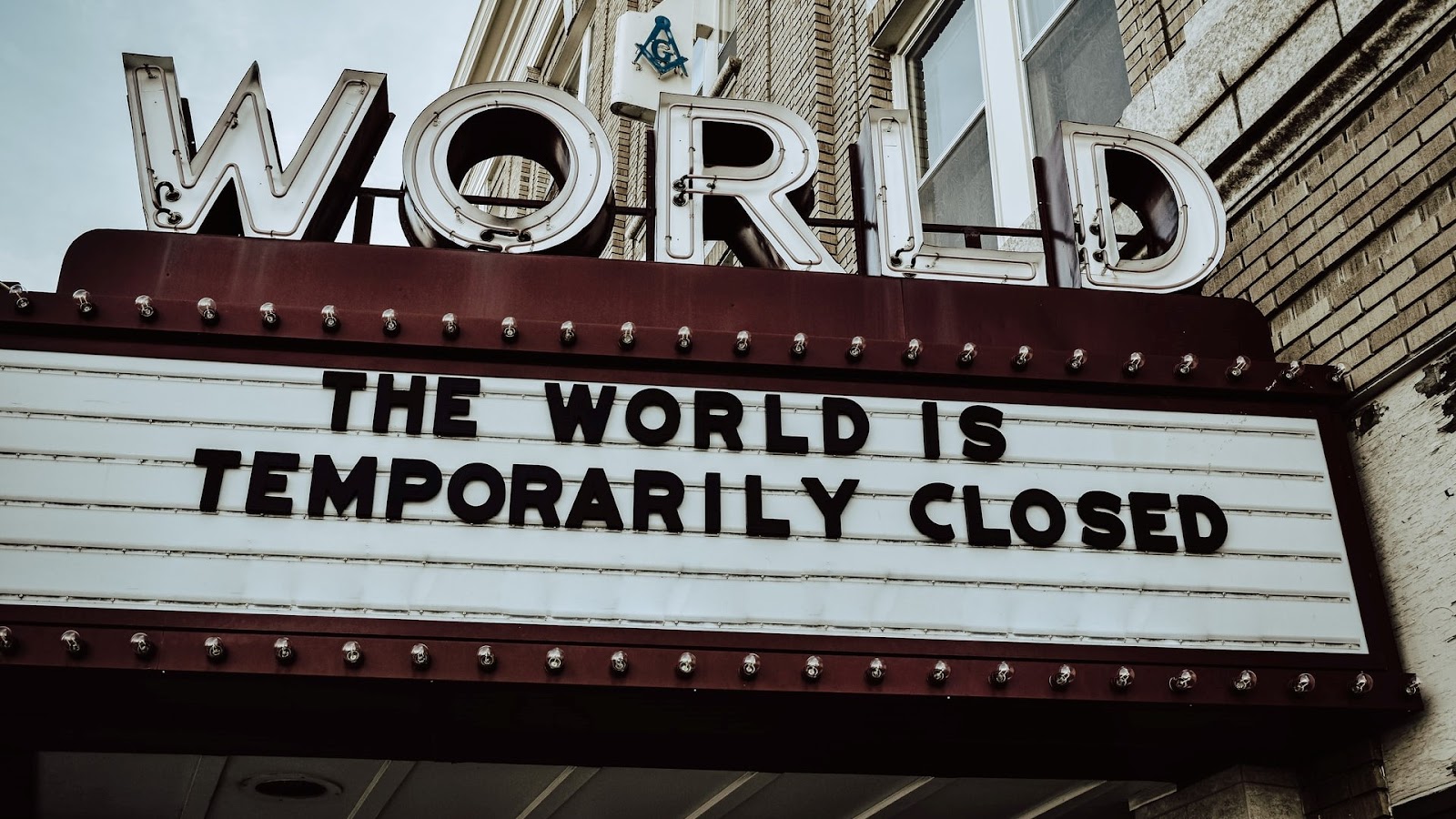Not so long ago, the dystopian world of 2020 would have been impossible to foresee. Few could have imagined that many of the freedoms we enjoyed in 2019 would so easily be revoked. After what had been a largely positive decade, particularly for economic development and the reduction of global poverty, much of the progress has now been completely undone. Consequently, lockdowns raised important questions around the role of government.
The world of 2020 would have been unthinkable in 2019
Most of us throughout the world have seen unprecedented threats to our civil liberties during the COVID-19 pandemic. Governments imposed stay-at-home orders that often last several months. They forced businesses to shut, causing untold hardship to so many entrepreneurs and their staff. Travel restrictions were severe, and many governments even prohibited individuals from having guests inside their homes, among other authoritarian policies.
Without knowing the context, almost everyone in 2019 would have regarded such a crackdown on normal life as barbaric and unthinkable. However, faced with the threat of a new and unfamiliar pathogen, many of us became convinced that there was no alternative to using a wide range of extreme and unprecedented measures to combat the virus.
New expectations placed on governments
There have been several major pandemics since the early twentieth century. These included, for example, the Spanish Flu (1918-20), the Asian flu (1957-58), and the Hong Kong flu (1968-69).
However, despite their extensive global impact, none of these pandemics resulted in anything close to the levels of disruption to society seen during the COVID-19 pandemic. What is now clear is that, at some point, governments have somehow been assigned responsibility for the death or suffering of any individual as a result of contracting a virus.
Regardless of the extremely questionable legitimacy of this new role of government, it is understandable that, faced with these changed expectations, politicians will naturally have an incentive to take any drastic measure possible. As such, the top-down solutions offered by most governments represent an attempt by politicians to deflect blame for any casualties resulting from the pandemic.
Thus, their argument is that, if a government implements strong measures but the virus continues to spread regardless, then it is not their fault but instead that of selfish individuals.
The issue of responsibility
One of the results of delegating all aspects of the pandemic response to governments is a decline in personal responsibility. Instead of assessing the risks of various activities, many will instead simply determine whether or not something is safe based on whether their government allows it on any given day.
Rather than agitating for a variety of ever-changing decrees, the role of public health should focus on communicating a clear and consistent message of advice to the public. This would involve raising awareness of the severity of a threat and promoting good practice. Individuals must not avoid taking personal responsibility by blaming the government for not enforcing responsible behaviors when something goes wrong.
It should not be up to governments to ensure that no negative consequences arise from individuals’ poor decisions. To imply that this is a legitimate role of government would set a very dangerous precedent.
Governments rarely give up powers
It is important to remember that, once a government increases its scope, the new powers it acquires are rarely given up. As Milton Friedman once brilliantly highlighted, “Nothing is so permanent as a temporary government program.”
Before 2020, governments being able to put entire populations under house arrest and to force businesses to close depending on what they deem essential would have seemed absurd. Likewise, had someone written a book about a world where governments began printing money to subsidize large sections of the population whom they prohibited from earning a living, it would unquestionably have belonged in the fiction section.
COVID-19 restrictions did eventually subside, but not before leaving behind a trail of economic devastation and a mental health crisis. Ultimately, a less obvious but extremely important element of lockdown’s legacy will be a changed perception of the role of government and a precedent for repressive, draconian solutions to crises.
For more content related to the COVID-19 pandemic, be sure to check out our Pandemic Policy video playlist by clicking on the button below.
A version of this article was originally published on the Students For Liberty website in November 2020.
This piece solely expresses the opinion of the author and not necessarily the organization as a whole. Students For Liberty is committed to facilitating a broad dialogue for liberty, representing a variety of opinions.



